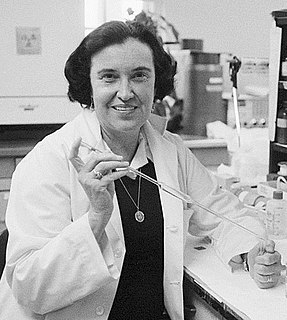A Quote by Robert Sapolsky
It's a profound privilege to die from stress related diseases. It is the elimination of other causes of death such as infectious disease which is responsible for bringing lifestyle diseases to the fore - and these are exquisitely sensitive to stress.
Related Quotes
When women and men have approximately equal life expectancies, it seems to be because women die not only in childbirth (fewer than thought) but about equal from diseases; poor sanitation and water; inadequate healthcare; and diseases of malnutrition. In industrialized societies, early deaths are caused more by diseases triggered by stress, which breaks down the immune system. It is since stress has become the key factor that men have died so much sooner than women.
We start with an economic approach. We look at what are the greatest causes of death in the developing world, and what causes the largest amount of disability, which would prevent you from getting a job. A lot of those deaths start with diseases, diseases we don't get in such a great number in the United States.
There is a lot of new research about how stress hormones affect your body and how you can work on giving your body as much of the good hormones as possible, because that heals your body. I am quite a rational person - so when someone could show me that there was a rational way of seeing fear in terms of stress hormones, it was easier for me to understand. I think all autoimmune diseases are very sensitive to stress. It is typical that the flares come after a period of emotional stress. The connection is quite clear.



































